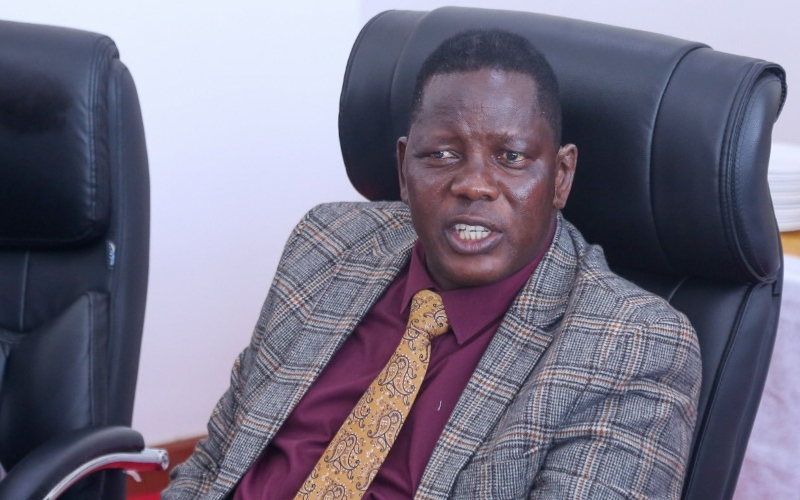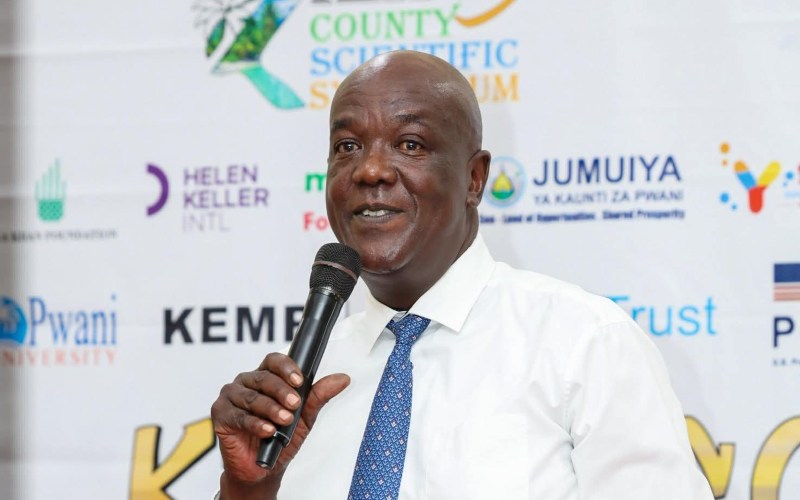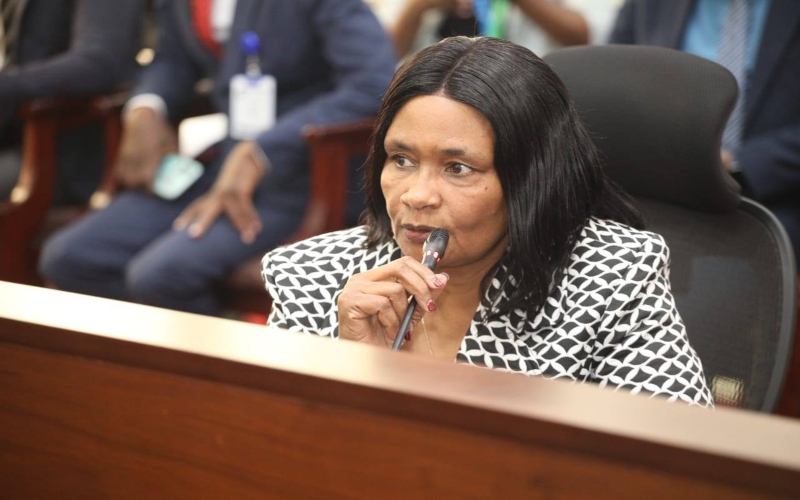Counties undermining UHC by redirecting reimbursements, Health Committee says

Endebess MPRobert Pukose, who chairs the Health Committee, condemned counties for diverting reimbursements, saying the practice is illegal and harms patient care.
A Parliamentary committee has sounded the alarm over the continued practice of illegal patient co-payments in public hospitals, pointing fingers at county governments for undermining the rollout of the Universal Health Coverage (UHC) programme and weakening service delivery across the country.
Members of the National Assembly’s Departmental Committee on Health expressed concern that some counties are directing reimbursements meant for health facilities into county revenue accounts, a move that contravenes the Primary Healthcare (PHC) Act and the Facilities Improvement Financing (FIF) Act.
More To Read
- Third Kilifi health forum opens with urgent calls for financing, digital solutions
- KNCHR says Kenyans still locked out of healthcare despite Sh138 billion SHA boost
- England confirms new mpox strain: What you need to know
- Kenya urges stronger regional cooperation as transport corridors fuel disease risks across East Africa
- MPs ditch SHA, the public health scheme they once praised, and opt for private cover
- WHO calls for urgent action to achieve universal health coverage by 2030
These laws were designed to ensure that funds are retained and used directly within health facilities to enhance service provision.
The leaders discussed the issue on Tuesday with top officials from the Ministry of Health (MoH), the Social Health Authority (SHA), the Kenya Medical Practitioners and Dentists Council (KMPDC), and the Digital Health Authority (DHA).
The meeting focused on reviewing the committee’s report on SHA Fund utilisation and identifying obstacles that are hindering the effective implementation of UHC at the facility level.
Endebess MPRobert Pukose, who chairs the committee, condemned counties for diverting reimbursements, saying the practice is illegal and harms patient care.
“You will find that some counties are asking their health facilities to remit the reimbursement paid for services rendered back into county revenue accounts. That contravenes the FIF Act. County legislation is subordinate to national law,” Pukose stated.
He challenged the Ministry of Health and KMPDC to take decisive action against county governments that continue to enforce these illegal charges.
“Merely naming these counties is not enough. What remedial measures are in place to ensure they stop imposing illegal co-payments? You cannot double-charge the mwananchi. When patients are unable to pay, they are denied services, meaning the reimbursement offered is of no benefit to ordinary Kenyans,” Pukose added.
Health Cabinet Secretary Aden Duale described the co-payments as “illegal and immoral” and said the issue has already drawn the attention of the President.
“There are a few counties that had introduced co-payments. Some were spoken to at the highest level and have since stopped. Kiambu was one of them, and I am informed the situation has improved,” Duale said.
He proposed that Parliament and the Council of Governors (CoG) work together to address gaps in compliance, noting that some county leaders resist reforms that shift control of revenue away from treasuries.
“FIF is not debatable. The Constitution is clear, national legislation supersedes county laws. We may need a joint engagement between Parliament, CoG and the Ministry to straighten what is not working on the ground,” Duale said.
MP Pukose pressed further, insisting the Ministry do more to ensure adherence.
“You are the one making PHC payments. Why should co-payments continue under your watch? When FIF funds are diverted to county treasuries, they are rarely returned to facilities. How will facilities continue purchasing supplies if money meant for them is taken away?” he asked.
The CS revealed that a digital reporting platform is being developed to allow citizens to flag illegal co-payment cases, especially in remote areas where patients are unaware of their rights.
“It is immoral for any leader to impose co-charges. We are working with the Digital Health Agency to establish a reporting system and a call centre through which Kenyans can report co-payment cases,” he said.
Duale added that directing funds straight to facilities was a deliberate measure to improve service delivery, ensure medicine availability, and strengthen operations at the point of care.
“Health services generate the highest revenue for most counties, and although they are receiving substantial resources, the discomfort arises because reimbursements no longer pass through county treasuries. This limits their control over the budgets and management of health facilities,” the CS explained.
Seme MP James Nyikal, the committee chair, suggested reviewing the law to close loopholes that allow counties to justify additional charges.
“If there is a section of the law that allows co-charging or enables counties to develop their own legislation on facility fees, we may need to relook at it and repeal those provisions,” Nyikal said.
The committee is expected to summon leaders from the CoG Health Committee and the parliamentary Standing Committee on Health for a joint session to address the ongoing non-compliance, amid fears that illegal co-payments could derail Kenya’s UHC agenda.
Top Stories Today













































